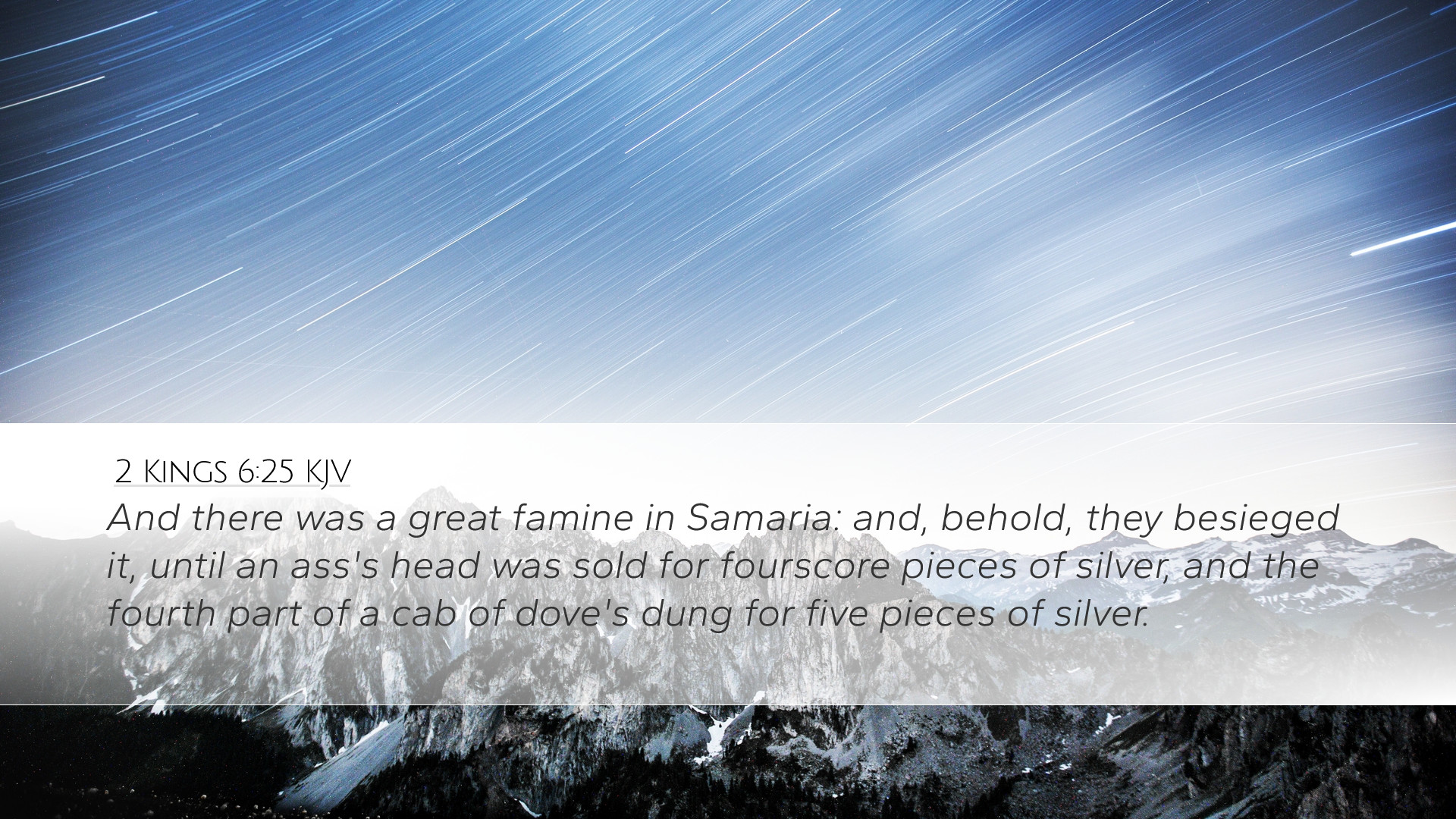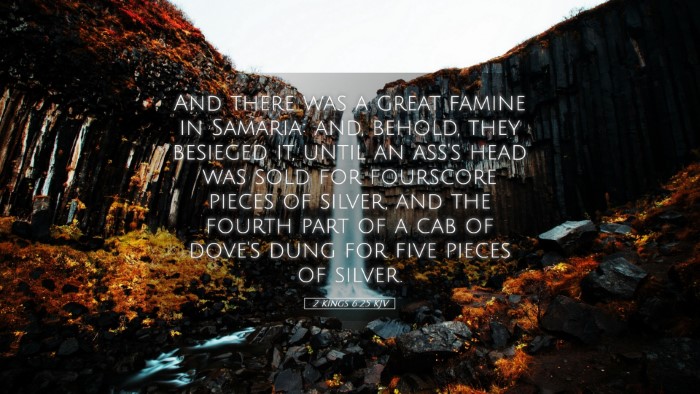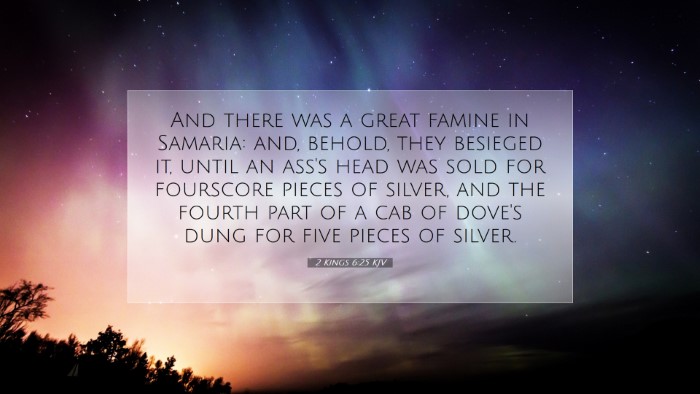Commentary on 2 Kings 6:25
2 Kings 6:25 states: "And there was a great famine in Samaria: and, behold, they besieged it, until an ass's head was sold for fourscore pieces of silver, and the fourth part of a cab of dove's dung for five pieces of silver."
Contextual Background
To understand the depth of this verse, one must consider the historical and theological context of the time. The famine in Samaria occurred during the reign of King Joram, a period marked by rebellion against God and spiritual decline. The Assyrian siege represented not only a physical deprivation but also a spiritual famine as the Israelites turned away from divine providence.
Insights from Matthew Henry
Matthew Henry highlights the severity of the famine by illustrating the extreme measures people resorted to for survival. He notes that "the sale of an ass's head for such an exorbitant price evidences the desperate state of the city" and underscores the depths of depravity that have manifested through such hunger. In this instance, the head of a defiled animal became a symbol of desperation and despair.
Spiritual Implications
Henry further elucidates the spiritual implications of this famine, suggesting that it serves as a divine chastening for Israel's unfaithfulness. By experiencing physical hunger, the people are called to reflect on their spiritual condition and their covenant relationship with God. The famine is not merely a consequence of war but a profound statement of God’s displeasure towards the people who have strayed from His commands.
Insights from Albert Barnes
Albert Barnes offers a contextual analysis of the high prices mentioned in the verse, arguing that they reflect a time of dire need, filled with hopelessness. He asserts that such prices for the heads of unclean animals and refuse underscores the spiritual desolation that encompasses the city. Barnes specifically observes that this scenario fulfills prophecies of judgment against Israel for their disobedience (see Deuteronomy 28:53-57).
Comparative Analysis
In Barnes' interpretation, the dire circumstances invoke a comparative analysis with the lives of the faithful versus the unfaithful in Israel. During periods of spiritual decline, physical suffering often reflects the inner turmoil of a nation in rebellion against God. He encourages readers to see the famine not just as a historical event but as a metaphor for spiritual famine in one's life when they turn away from divine guidance.
Insights from Adam Clarke
Adam Clarke's commentary delves into the linguistic aspects of the text, observing that "the terms used to describe the amounts for which items were sold illustrate a shocking reversal of normalcy." Clarke emphasizes that the economic markers in this passage serve as a commentary on the radical transformation of societal values when fear and desperation take root.
Symbolism of Food and Spiritual Nourishment
Clarke draws a parallel between the physical famine and the spiritual famine faced by the Israelites. He suggests that the offerings of dove's dung are emblematic of the unclean and unacceptable sacrifices people make in times of despair. The symbolism lies in the idea that when people are spiritually bankrupt, they may turn to what is unclean in search of sustenance.
Theological Reflections
Reflecting on the commentaries of Henry, Barnes, and Clarke, we can discern several significant theological themes:
- The Judgment of God: The famine is indicative of God's wrath against Israel's prolonged sinfulness.
- Desperation and Spiritual Famine: The physical suffering mirrors the spiritual desolation resulting from disobedience.
- Call to Repentance: In times of great suffering, there is a divine invitation to return to covenant faithfulness.
- Hope Beyond Suffering: Even amidst despair, God's ultimate plan for restoration remains a pivotal aspect of the narrative.
Conclusion
In conclusion, 2 Kings 6:25 serves as a profound reminder for contemporary believers about the consequences of straying from God’s covenant. It compels us to examine our lives both spiritually and physically, urging a return to faithfulness to avoid the consequences of spiritual famine. The insights gleaned from Henry, Barnes, and Clarke enrich our understanding of this text, inviting pastors, students, and theologians to reflect on their own spiritual journeys in light of this powerful narrative.


